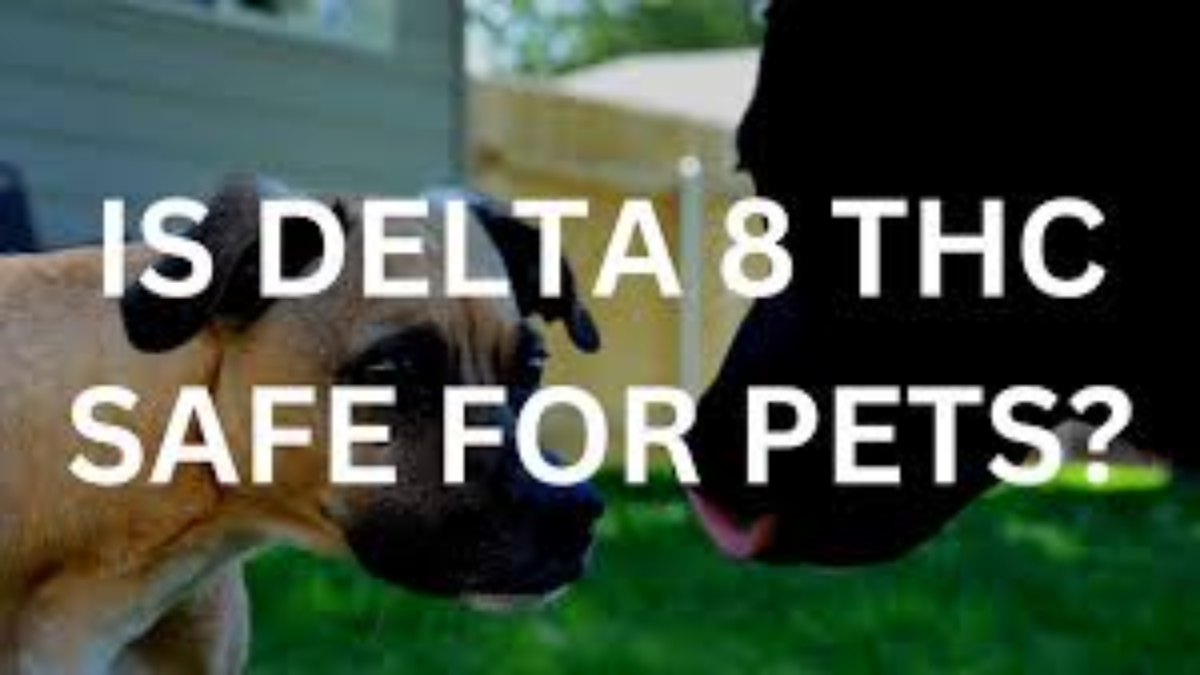The use of delta-8 has increased recently as a substitute for delta-9, the primary psychoactive ingredient in cannabis. However, concerns about its legality and detectability have emerged, especially in contexts involving drug detection dogs. Whether drug dogs can smell delta-8 THC remains a topic of uncertainty, requiring further investigation to understand their detection capabilities thoroughly. For more information, you can visit Pets Care Insiders.
This article explores the capabilities of drug dogs in detecting delta-8 and the scientific basis behind their abilities. Understanding these factors is crucial because they impact how law enforcement approaches the detection of delta-8 in various settings.
Understanding Delta-8 THC
Delta-8 THC, like delta-9 THC, is a cannabinoid found in cannabis plants. It interacts with the body’s endocannabinoid system, producing effects that are typically less intense than those of delta-9 THC. This compound often derives from hemp, which contains lower levels of delta-9 THC and higher levels of CBD.
Drug-Detection Dogs and Their Training
Drug detection dogs, expertly trained canines, are capable of identifying even the most minor amounts of drug residue in various settings, including private automobiles, border crossings, and airports. They do this by detecting specific scents linked to illegal substances, such as delta-9-THC in marijuana.
These highly specialized animals are crucial for law enforcement and are the backbone of safety. They provide accurate detection capabilities that are instrumental in maintaining safety and enforcing legal regulations.
Their ability to detect minute traces of drugs underscores their importance in combating drug trafficking and ensuring public security. Moreover, their training is rigorous, with continuous evaluation and refinement to enhance their effectiveness in various operational environments.
Can Drug Dogs Smell Delta-8 THC?
Several factors determine the ability of drug dogs to detect delta-8 THC, including their training, the concentration of delta-8 THC, and the legal status of this cannabinoid. Unlike delta-9 THC, which drug dogs are trained to detect, delta-8 THC has a different chemical structure and may not trigger the same response in drug detection dogs. Therefore, these factors significantly affect the effectiveness of their detection abilities.
Chemical Composition and Scent Detection
Although the chemical structures of delta-8 and delta-9 THC are similar, they differ in where a double bond is located within the molecules. Drug dogs are trained to recognize the distinct scent profile of delta-9 THC, which differs from that of delta-8 THC. Consequently, this difference in chemical structure may impact how drug dogs detect delta-8 THC.
Training and Specificity
Drug detection dogs undergo rigorous training to identify specific scents associated with illegal drugs. Trainers reward dogs for correctly identifying target scents, such as delta-9 THC. Whether drug dogs can detect delta-8 THC depends on whether it has been included in their training regimen and their ability to distinguish it from other scents.
Legal Considerations
Certain areas permit the use of delta-8 THC as long as it complies with regulations, such as originating from hemp containing less than 0.3% delta-9 THC. In other places, it might be categorized as a controlled substance, similar to delta-9 THC. Whether drug dogs are trained to detect delta-8 THC may depend on this legal distinction.
Scientific Research and Evidence
Scientific studies on the capacity of drug dogs to detect delta-8-THC have not extensively explored this topic. Research has primarily focused on delta-9-THC and other restricted substances. More investigation is necessary to determine whether and under what conditions drug dogs can accurately detect delta-8 THC.
Impact of Legalization of drug dogs smell delta-8
Concerns regarding drug detection methods and law enforcement practices have arisen as a result of the legalization of cannabis and its derivatives, including delta-8-THC. Law enforcement agencies may need to review their drug detection dog training procedures if delta-8 THC becomes more widely accepted.
Challenges and Limitations of drug dogs smell delta-8
While drug detection dogs are highly trained, they are not infallible. Environmental conditions, the presence of other scents, and the concentration of delta-8-THC can affect their ability to detect this compound. These challenges highlight the complexity of scent detection and emphasize the need for ongoing training and evaluation.
Conclusion
The ability of drug dogs to detect delta-8-THC remains uncertain and requires further scientific study. The chemical differences between delta-8 THC and delta-9 THC may affect a drug dog’s ability to detect this cannabinoid. As laws and attitudes toward cannabis continue to evolve, law enforcement practices and the training of drug detection dogs must also adapt.
